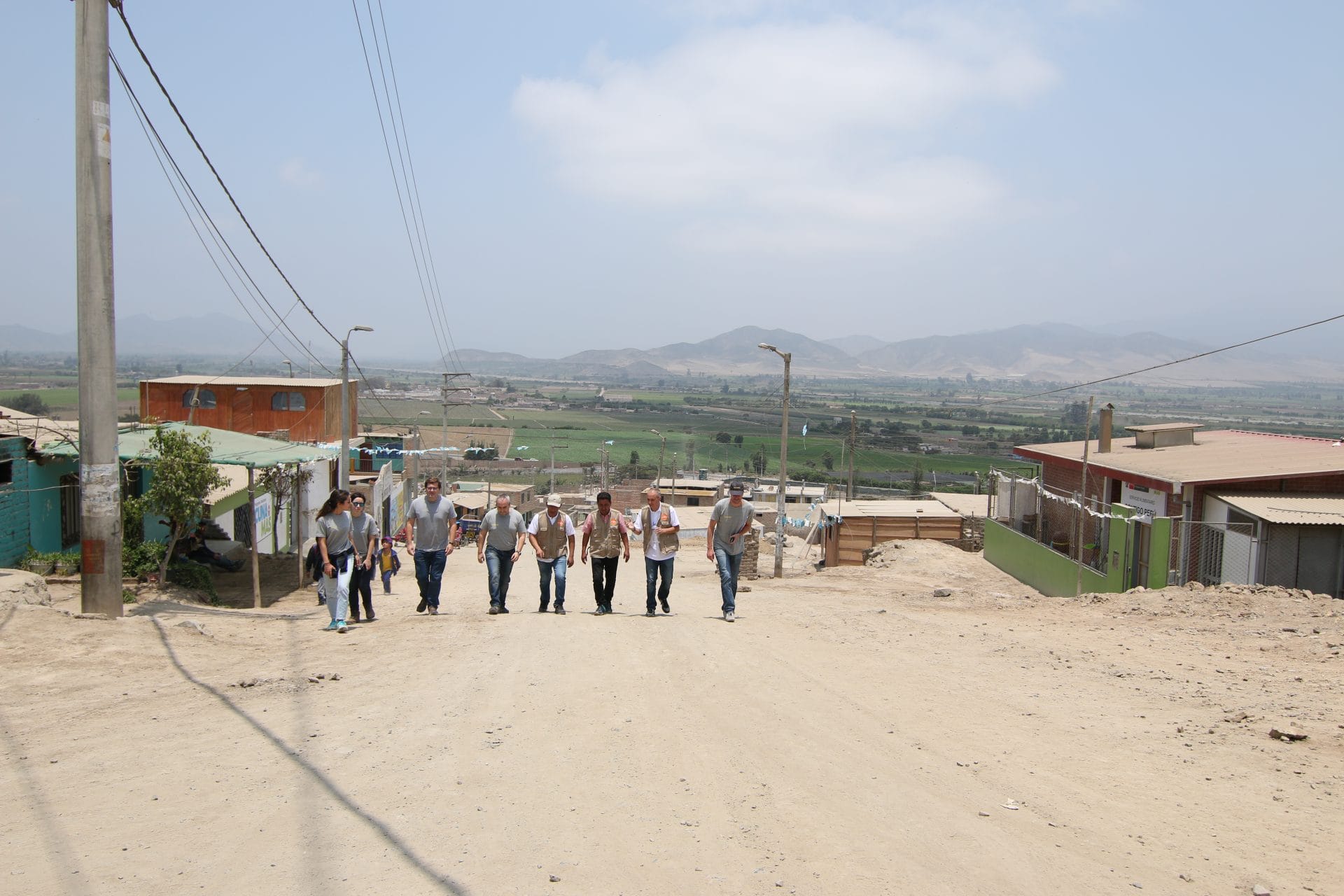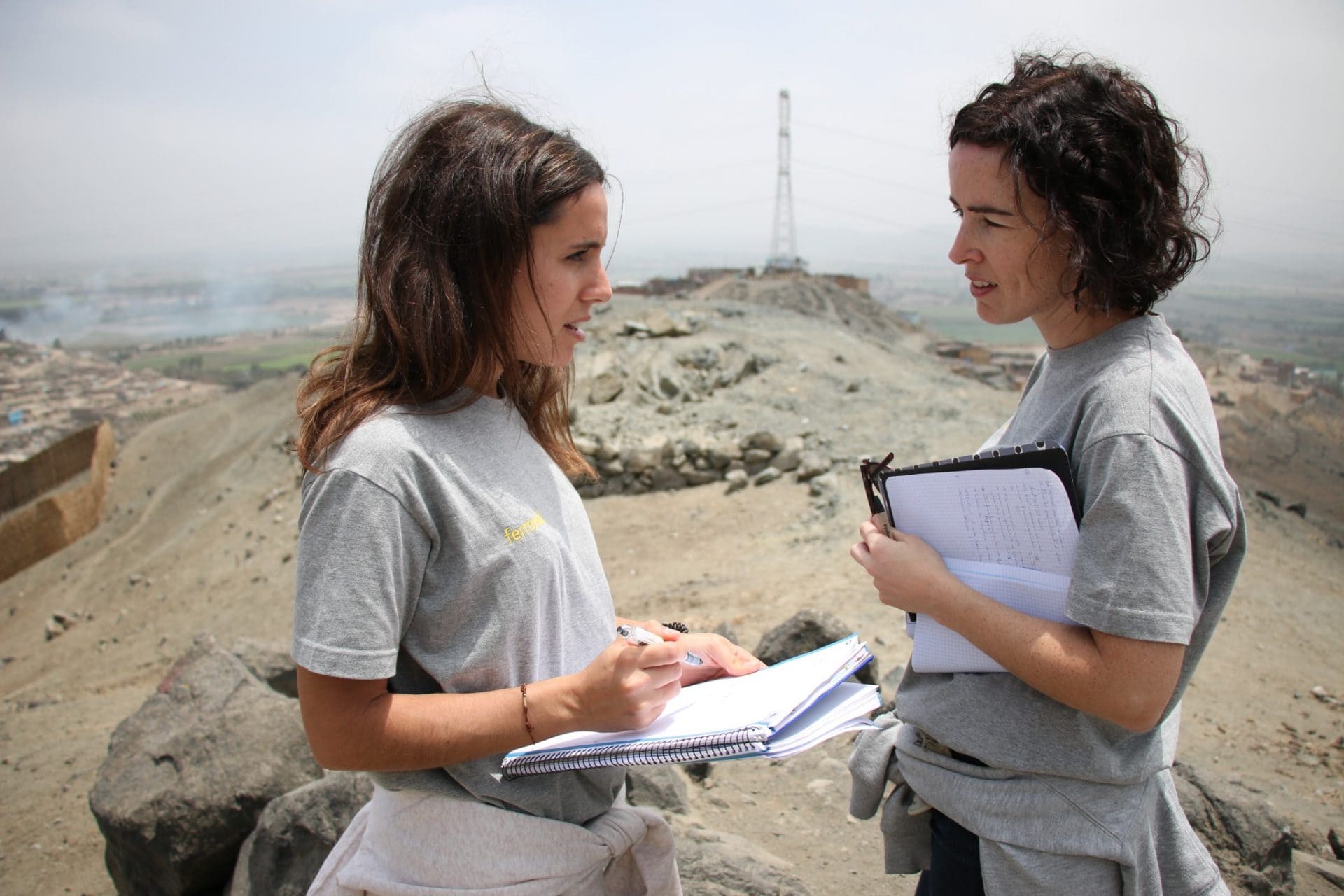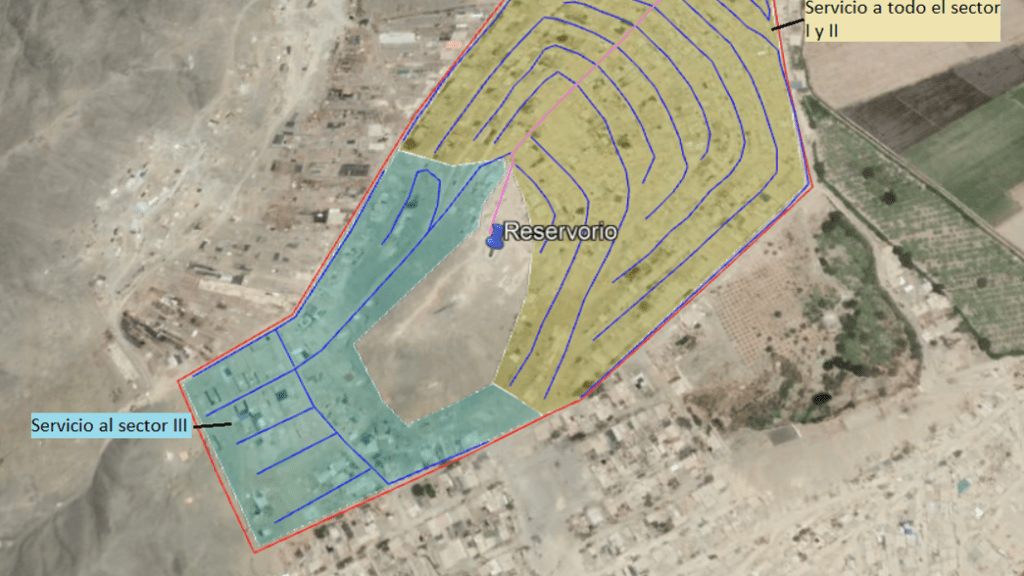The crisis caused by the COVID-19 pandemic has led us to reshape the concept of development cooperation. Innovation, co-creation, articulating actors, and the private sector’s participation, to name a few, have become key aspects in facing the new context with solid proposals.
This cooperation model is what CODESPA and Ferrovial have implemented in peri-urban neighborhoods of the city of Huaral, located north of the city of Lima-Peru. These neighborhoods, also called slums, are made up of families who arrived from the interior of the country more than 30 years ago, escaping the armed conflict that shook Peru in the 1980s and early 1990s. They were looking for better living conditions and job opportunities. The lack of housing in the cities led to them being located in areas of the city’s periphery in precarious housing with basic services.

Social and economic problems
The intervention is being carried out at two settlements: Contigo Perú and El Angel Makatón. Life is not easy for its inhabitants. Luis Cáceres, head of CODESPA in Peru, remarks, “Social problems such as overcrowding, sexism, and diseases associated with the lack of good-quality drinking water in homes must be added to the precarious home economy. The last of these is a problem for more than 8 million people in the country.”
Since 2019, the cooperation between Ferrovial and CODESPA has alleviated this situation, improving the home supply of drinking water for more than 2,000 families. In addition to improving the quality of the water consumed daily, there has been training in proper use of this resource and in managing distribution systems, thereby strengthening the organizations in charge (JASS).
“The intervention helped us to organize ourselves better as a Board of Directors. We’ve constantly participated hand-in-hand with the engineers and specialists; we’re already managing more knowledge at connections and facilities. It’s a blessing to be able to enjoy a resource that’s so important to our lives and for protecting ourselves from COVID,” Brígida Solano – JASS President at Contigo Perú – Huaral.
A significant key aspect in this cooperation model was having participation from volunteer experts, who provided technical advice in designing technical solutions to improve household supply and distribution systems.
Professionals in civil engineering, topography, and environmental engineering were involved in both projects. They contributed new approaches to the design and subsequent execution of the works both physically and socially based on their expertise. This collaboration was carried out in person in 2019 and virtually in 2021, given the restrictions on movement that arose from the pandemic. In Luis’s words, “The contribution was quite important and valuable for the success of the projects, and at the same time, it allowed these professionals to get to know the needs of this population up close. The recommendations that came from volunteers were well received by the population and were adopted by the residents to improve this service.”
“We were walking with the volunteers through the hills. I taught them how to manage the Contigo Perú water system, which is my place of work. We saw the meters, the well, the connections, and they taught me how I could better manage the system. They also trained me in using all that; I feel that I learned more than I already knew.” Julián Jabel – Head of the water supply system at the Contigo Perú settlement.

A common goal
Another important factor for the cooperation’s success is for all actors to share the same vision of development. This is key in execution, facilitating decision-making, and for the interventions’ future sustainability. The search for the same objective generates bonds of trust and support among everyone involved, which is difficult to find in the current context.
This has been put into practice in the Huaral projects, where Ferrovial, CODESPA, and JASS have worked jointly, participating both in the design of the solutions and the subsequent execution and monitoring of the project’s progress. As a result, the projects have the support and ownership of the recipient population, who now protect and value water as an important resource for life and for facing COVID-19, since hand-washing and house cleaning are now possible.
“The project was magnificent. Before, my connection was at the back of my home, and that was hard for me. It hindered the improvements I wanted to make. But now, having my connections where they should be, I’ve learned to take care of and look out for this resource.” Magda Sullca – Resident of El Angel.
The projects to improve the drinking water supply in the Huaral settlements benefit nearly 2,000 residents, improving access and availability for 600 homes in the two settlements.








